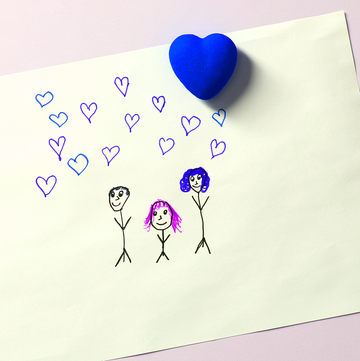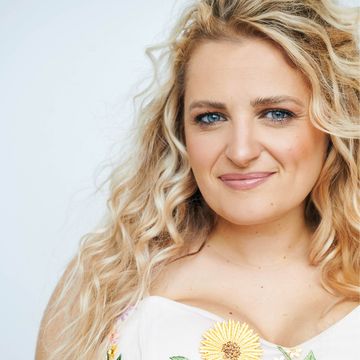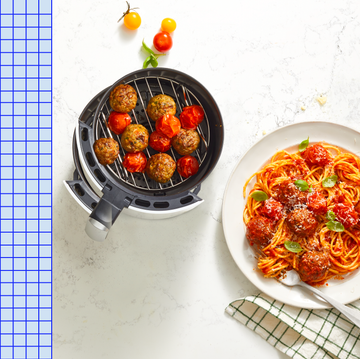With controversial public figures testing the boundaries of the law and navel-gazing social media stars emphasizing self-interest over service, it’s only natural to fret over how the next generation will learn right from wrong.
But don’t lose hope; your kids are developing a sense of morality even if they’ve never taken an ethics class or attended a religious service. Experts say although religious and cultural norms and laws vary, distinguishing right from wrong boils down to a simple and universal principle: acting in ways that help rather than harm others — and that’s a lesson kids can learn in all sorts of ways.
And as a parent, you play a big role. Each day, and in a lowkey way, it’s your responsibility to guide your kids to help rather than harm, says Karen E. Stohr, Ph.D., Ryan Family Professor of Metaphysics and Moral Philosophy and Senior Research Scholar, Kennedy Institute of Ethics, Georgetown University and author, Choosing Freedom; A Kantian Guide to Life.
First, teach your kids to recognize and respond to other’s feelings.
Morality begins with emotional awareness or what’s known as social-emotional learning (SEL). Start by helping younger kids recognize and name their feelings. Then, they can understand how others are feeling. (For example: “That child is crying. They must be sad.”)
After that, they can connect their own actions to other people’s emotions, so they understand the direct impact of their behavior on the world around them. (“You took their toy, and now they’re sad.”) Finally, show them how to resolve the situation. With a preschooler, this could mean walking with them to the crying child, encouraging them to say sorry, and prompting them to make amends (like by returning the toy). When they’re a bit older, you can remind them to act, but let them do so on their own.
Empower them to think about morality.
Once they understand others’ emotions, they can start to build their moral judgment and reasoning so they can “find solutions to social conflicts that are mutually fair and supportive,” says Larry Nucci, Adjunct Professor of Education at the University of California, Berkeley and author of Moral Education for Social Justice.
To encourage this type of thinking, ask your kids to evaluate the actions of fictional characters or public figures (like politicians and celebrities), Stohr suggests. Pose questions like, “Do you think that was the right thing to do? If not, what would you have done instead?” Then, give them an opportunity to reflect, so they can make their own decisions. “The goal is for them to develop their own moral character and take ownership of it,” she says. “That way, they’ll think, ‘This is who I am. I’m the type of person who won’t lie or sell out my friend.’”
Model moral behavior and apologize when you don’t.
“A lot of parents think [moral education] happens by itself or is someone else’s responsibility — they think religion or Girl Scouts will take care of it,” says Marvin W. Berkowitz, Ph.D., Sanford N. McDonnell Professor of Character Education and Co-Director of the Center for Character and Citizenship at the University of Missouri-St. Louis and author of PRIMED for Character Education. “They don’t realize parents are the single most important character educator in their children’s lives.” Since kids learn more from what you do than what you say, he says, you must “be what you want your kid to be.”
So, if you tell your 6-year-old not to hit others, don’t spank him when he scratches his sister, says Nucci, who shares his techniques with educators. “We have to be careful to not be hypocritical, which requires a lot of self-reflection on our part,” Stohr admits.
When we fail to set a shining example — which we will, since we’re human, after all — we should admit our error and apologize. By taking this step, we show our kids that everyone (even adults) can work to remedy their mistakes and improve their behavior.
Give feedback on their behavior — not their personality.
Remember to highlight their moral acts, not only their As on tests, says Michele Borba Ed.D., author of Thrivers: Surprising Reasons Why Some Kids Struggle and Others Shine and Building Moral Intelligence. Then, when praising or scolding, explain the impact of their behavior on the other person’s feelings.
For instance, say, “I’m so proud of you. You found your friend’s toy on the ground and even though you wanted to keep it, you gave it back to them. And did you see her face? She was so happy!” Or conversely: “We always tell you to use your words and not your hands with your little brother, and you just hit him and hurt him. That’s why he’s crying, and that’s why I’m disappointed in you.” By being specific, Berkowitz says, you’re expressing you’re unhappy with their behavior, not them as a person. “Differentiate what they did from who they are,” she says, “so they don’t feel worthless in your eyes because they made a mistake.”
Gently guide older kids.
When your tween or teen expresses admiration for a ruthless public figure, help them look at their behavior more critically, suggests Stohr. “These people might not keep it together when things go wrong because they’re used to getting their own way,” she explains. “Or they might not have important relationships because of their selfishness. Then, talk about why friendships matter and how to be a good friend.”
Just avoid telling them what to do. Since “teens are trying to pull away from us and assert their own identity,”she says, they’ll most likely resist directives and lectures. Instead, pick your battles and coax them into making their own judgments and decisions about morality.
Help them see the bigger picture.
Consider encouraging your kids to carry out their own acts of community service, “Help them find their passion, set their goal, and get started,” Borba says.
For instance, if they express concern for unhoused people in your community, suggest they collect blankets to hand out on cold days. “Starting with something face-to-face will maximize the impact in your child’s life,” she adds. That way, kids directly witness the positive impact their actions could have on others, furthering their moral education. After all, “We’re building our morality from infancy on,” Nucci says. “It’s never too late to work on it.”

Dina Cheney is the author of six books, including The New Milks: 100-Plus Dairy-Free Recipes for Making and Cooking with Soy, Nut, Seed, Grain, and Coconut Milk; she also writes about health, relationships, fitness, beauty, and food for various publications. Visit her website at dinacheney.com. Social handles: Instagram (@authordinacheney), Twitter (@DinaCheney), and Facebook (@dinacheney).
















